Letter: Catholic hospitals treat body, mind, soul
In her May 25 op-ed “Treatment at hospital follows ‘Catholic tradition,’” Rekha Basu made several unfounded ethical claims that misrepresented the reality of Catholic thought in medicine. First, she attacked the conscience rights of physicians who refuse to perform or refer for abortions; yet, as a matter of state and federal law, under no circumstance is a physician legally required to perform a procedure, prescribe a medication, or refer for either, to which she is morally opposed. Just as a patient has autonomy in making health-care decisions, the physician is also an autonomous person with the right to provide ethical care. The same applies for a hospital, Catholic or otherwise.
Second, in the case of desired “fetal extraction,” women’s lives are not threatened by a hospital or physician refusal as Basu claimed, as extraction is only required if the fetus has died. If a heartbeat exists, it is still possible to deliver the fetus in a way that is respectful of her innate human dignity. An “extraction” on a living fetus requires surgery that rips the fetus from its mother’s womb limb by limb —also posing grave risks for the mother, including uterine rupture and future infertility. Catholic hospitals instead offer respectful life-affirming alternatives for those involved in such an unfortunate scenario.
Third, Catholic health-care systems agree that “women should be in charge of their health care,” yet if a medication or procedure is unethical or unhealthy then it necessarily follows that the hospital, while not “hiding” that option, should also not provide it. Ultimately, an unethical option should not be considered “best practice” regardless of popular opinion. “Best practice” guidelines have limits and cannot describe every medical or ethical situation. The nuanced art of medicine requires each physician to constantly seek the good for her patient as well as her own moral well-being.
Fourth, the Ethical and Religious Directives (ERDs) that guide Catholic health-care systems, as well as patients, in making decisions that uphold human dignity are to be embraced as a superior alternative to an increasingly secularized medical culture that shuns the God-given value and gift which is human life. The ERDs were not (contrary to Basu) written by isolated religious clergy in a boardroom, but instead by educated men and women who understand the challenges presented to Catholic health care in a contemporary society. The ERDs improve humanistic communication, promote social justice and care for the poor, and affirm the dignity of all persons, rather than simply the “choices” they make.
In the Catholic tradition, respect for human life is prioritized in all stages, from an unborn fetus, to a distressed young pregnant woman, to an elderly man dying of cancer. Catholic hospitals, cornerstones of societal well-being (as Basu’s own statistics point out), represent this innate outpouring of charity. Catholic medical and social teaching recognizes that the best way to care for the human person is to care for her body, mind and soul, so it should not separate morality from health care. This commitment to ethical medicine upholds the Catholic doctor’s legal and professional obligation to patients and taxpayers.
Dr. Elizabeth Matheson
Catholic Medical Association of Columbus
Categorised in: Education


